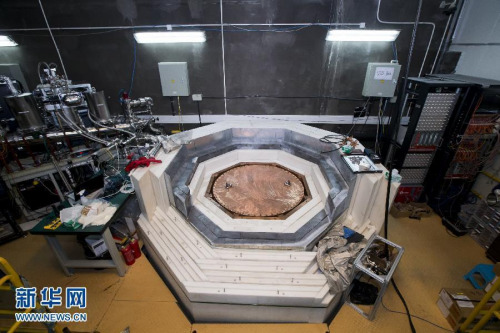
Photo taken on December 24, 2014 shows devices in Jinping Underground Laboratory in southwest China's Sichuan Province. The lab is located at 2,400 meters under the surface of Jinping Hydropower Station and opened in December 2010. (Photo/Xinhua)
The world's deepest subterranean lab in southwest China is building another underground space that will block cosmic rays, helping scientists trace the origin of elements.
Jinping Underground Laboratory, which is 2,400 meters deep in a mountain in Sichuan Province, has begun building a nuclear astrophysics lab, the China Institute of Atomic Energy told Xinhua.
This arm of physics is a frontier science that studies nuclear reactions within stars, the process that creates many elements. Research into this area provides insight into stars' evolution and the origins of elements.
"The lab will offer the world a new top-class platform for conducting precise measurement on nuclear astrophysics," said Liu Weiping, vice dean of the institute.
Researchers hope to use the facility to explore the birth of heavy elements by measuring neutron source reactions, according to Liu.
Scientists say cosmic rays are known to have disrupted previous observations. This new lab will provide a "clean" space for a number of physical and cosmologic experiments, including those concerns with the search for "dark matter."
The facility opened in December 2010 and was expanded in 2014.


















































